When it comes to unique and fascinating pets, isopods are rapidly gaining popularity among hobbyists and nature enthusiasts alike. These tiny crustaceans, also known as pill bugs or roly-polies, are not only captivating to watch but also play an essential role in maintaining a healthy environment in bioactive terrariums. Whether you are a seasoned reptile keeper looking for live food, a gardener seeking natural decomposers, or simply curious about these intriguing creatures, this guide will help you navigate the world of isopods for sale.
What Are Isopods?
Isopods are small crustaceans that belong to the order Isopoda, with over 10,000 species found worldwide. They can be found in various habitats, including marine environments, freshwater bodies, and terrestrial regions. Terrestrial isopods, which are most commonly sold as pets, thrive in moist environments and play a vital role as detritivores, breaking down organic matter and recycling nutrients back into the soil. These characteristics make them an excellent addition to bioactive vivariums, as they help maintain a balanced ecosystem.
Why Consider Buying Isopods?
There are several reasons why people are searching for isopods for sale. Here are some of the most common ones:
- Bioactive Terrariums: Isopods are essential for bioactive setups, where they act as cleanup crews, consuming decaying plant material and waste. This helps maintain a clean environment for reptiles and amphibians.
- Natural Pest Control: In gardening, isopods can help manage pests and promote healthy soil by breaking down organic matter and improving soil aeration.
- Educational Purposes: Isopods serve as excellent teaching tools for children and adults alike, providing a hands-on experience to learn about crustaceans and their role in the ecosystem.
- Hobby Collection: Collecting different species of isopods has become a hobby for many enthusiasts who appreciate their unique appearances and behaviors.
Types of Isopods for Sale
The market offers a diverse range of isopods for sale, each with distinct characteristics and care requirements. Here are some popular species you might encounter:
- Armadillidium vulgare: Commonly known as the common pill bug, this species can roll into a ball when threatened. It is hardy and easy to care for, making it an excellent choice for beginners.
- Porcellio scaber: Known for their rough texture, these isopods are more active and less likely to roll up compared to Armadillidium species. They are great for bioactive setups due to their high activity levels.
- Cubaris species: Often referred to as “rubber duckies,” these exotic isopods are highly sought after for their unique appearance and behavior. They require specific conditions and are generally recommended for advanced keepers.
- Powder Orange and Powder Blue Isopods (Porcellionides pruinosus): These isopods are colorful, prolific breeders, and excellent at breaking down organic matter, making them ideal for bioactive environments.
- Dwarf White Isopods (Trichorhina tomentosa): These tiny isopods are popular in vivariums due to their small size and ability to reproduce rapidly. They are great for small enclosures or for use as live food.
Where to Find Isopods for Sale
Finding reputable sellers is crucial when purchasing isopods. Here are some sources to consider:
- Online Retailers: Many specialized websites offer a variety of isopods for sale, providing detailed care sheets and shipping options. Look for sellers with positive reviews and good communication.
- Local Pet Stores: Some pet stores, especially those specializing in reptiles and amphibians, may carry isopods. However, the selection might be limited compared to online options.
- Reptile Expos and Fairs: These events are excellent opportunities to meet breeders and vendors who offer a wide range of isopods. You can ask questions, see the isopods in person, and often get better deals.
- Hobbyist Groups and Forums: Online communities dedicated to isopod keeping often have members who sell or trade isopods. This can be a more personal way to buy and learn from experienced keepers.
What to Look for When Buying Isopods
When searching for isopods for sale, it’s essential to ensure you are purchasing healthy and well-cared-for specimens. Here are some tips:
- Check for Activity: Healthy isopods should be active and responsive when disturbed. Avoid purchasing lethargic or inactive isopods, as they might be stressed or unhealthy.
- Look for Mold and Mites: Examine the container for signs of mold or mites, which can indicate poor care or unhealthy conditions.
- Species Identification: Ensure you are getting the correct species. Some isopods look similar but have different care requirements. Reputable sellers will provide accurate identification and care information.
- Breeding Groups: If you are interested in breeding isopods, ask the seller for a mixed-age group to ensure a healthy breeding population.
- Shipping Conditions: Isopods are delicate creatures that require proper packaging and handling during shipping. Check that the seller uses appropriate packaging materials to keep the isopods safe during transit.
Caring for Your Isopods
Once you’ve found the right isopods for sale, it’s time to prepare their new home. Proper care is essential for keeping your isopods healthy and thriving.
- Enclosure: Isopods can be housed in various enclosures, from simple plastic containers to elaborate terrariums. The size of the enclosure depends on the number of isopods and their activity levels.
- Substrate: A mix of organic soil, leaf litter, and coconut fiber works well for most isopods. This substrate mimics their natural environment and provides material for them to consume.
- Moisture and Humidity: Isopods require a moist environment to survive. Regular misting and a moisture-retaining substrate are essential. Some species, like Armadillidium, prefer drier conditions with a moist hide, while others, like Cubaris, need high humidity.
- Temperature: Most isopods thrive in temperatures between 68-77°F (20-25°C). Extreme temperatures can stress or kill them, so it’s crucial to monitor their environment.
- Food: Isopods are detritivores, meaning they feed on decaying organic matter. Leaf litter, rotting wood, and vegetables like zucchini or carrots are excellent food sources. Supplementing their diet with calcium sources like cuttlebone is also beneficial.
- Hiding Places: Isopods need hiding spots to feel secure. Pieces of bark, leaf litter, and moss provide cover and help maintain humidity.
Common Issues and Troubleshooting
Even with the best care, you may encounter some challenges when keeping isopods. Here are common issues and how to address them:
- Mold Growth: Excessive moisture can lead to mold growth. Remove any moldy food or substrate and increase ventilation to reduce humidity.
- Mites Infestation: Mites are a common pest in isopod enclosures. They can be controlled by reducing moisture and removing infested material. Introducing predatory mites can also help manage the population.
- Cannibalism: While rare, cannibalism can occur if isopods are overcrowded or lack sufficient food. Providing ample space and food can prevent this behavior.
- Low Reproduction Rates: If your isopods are not breeding, check the environmental conditions, particularly humidity and temperature. Providing a varied diet and optimal conditions can encourage reproduction.
Expanding Your Isopod Collection
For those who find themselves fascinated by these tiny creatures, expanding your collection can be a rewarding experience. Here are some tips for growing your isopod collection:
- Research New Species: Each isopod species has unique requirements and behaviors. Research new species to understand their care needs and compatibility with your existing collection.
- Join the Community: Engaging with other isopod enthusiasts through forums, social media, and local clubs can provide valuable insights and opportunities to acquire rare species.
- Breeding Projects: Breeding isopods can be an enjoyable way to learn more about their lifecycle and contribute to the hobby. Start with common species and gradually move to more challenging ones.
- Trade and Purchase: As your collection grows, you may find opportunities to trade with other hobbyists or purchase rarer species from specialized breeders.
Final Thoughts on Finding Isopods for Sale
Isopods are more than just interesting pets; they are vital components of bioactive ecosystems and offer endless fascination for those willing to explore their world. Whether you’re a beginner or an experienced keeper, there are always new species to discover and new challenges to tackle.
When looking for isopods for sale, remember to choose reputable sellers, provide proper care, and continuously expand your knowledge. With the right approach, keeping isopods can be a fulfilling and educational experience that enhances your understanding of these incredible creatures.



